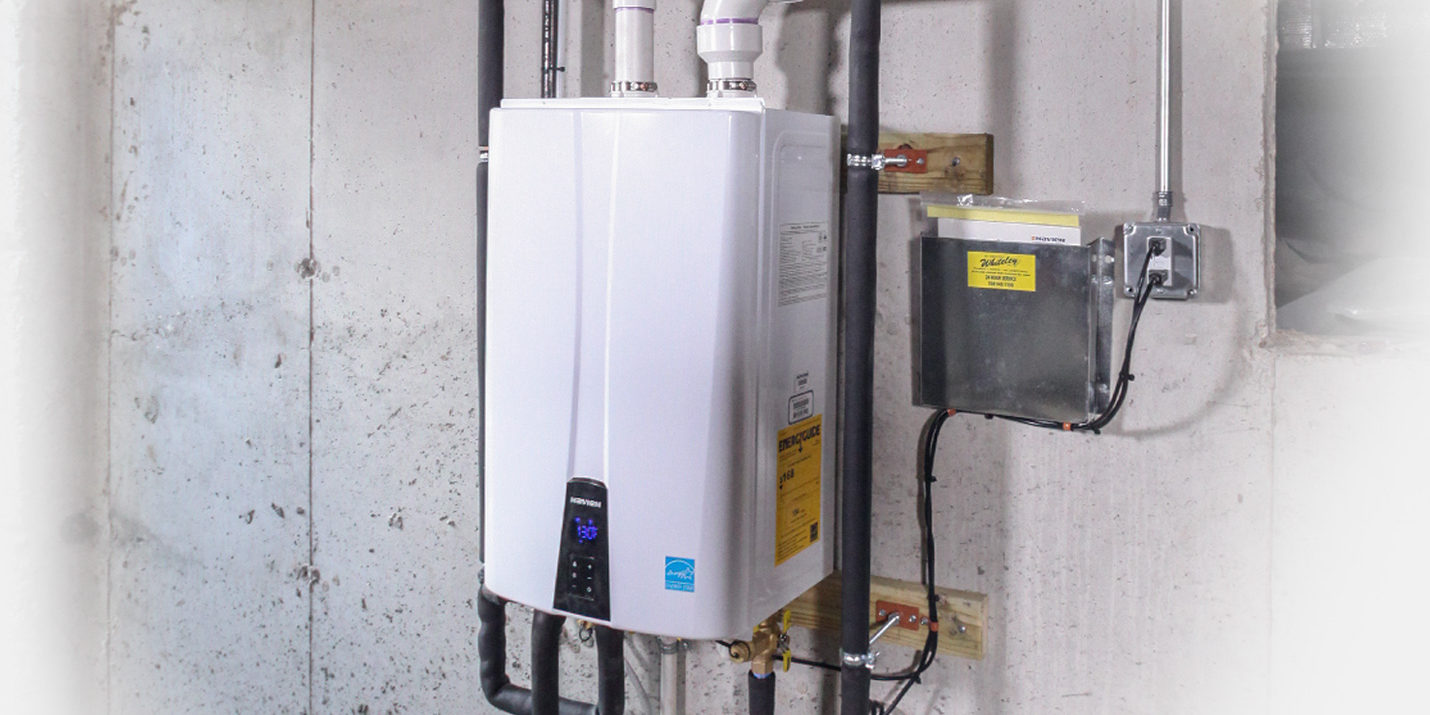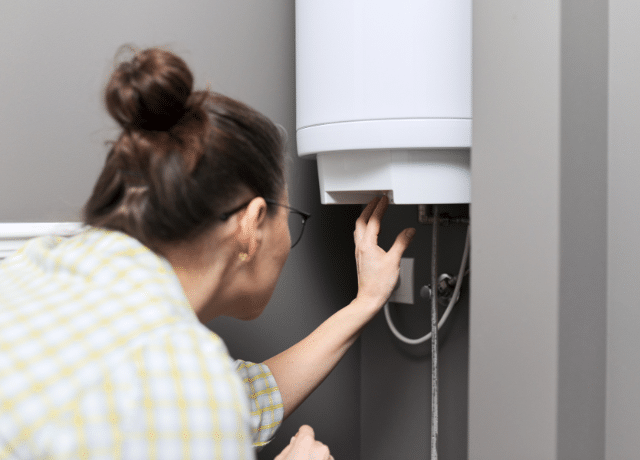Which Tankless Water Heaters Increase Household Benefits
Which Tankless Water Heaters Increase Household Benefits
Blog Article
What are your concepts on Six Benefits of a Tankless Hot Water Heater?

In a globe where benefit and effectiveness preponderate, it's no surprise that home owners are frequently in search of smarter ways to handle their home's power usage and comfort. One technology that has continuously acquired appeal is the tankless water heater. Yet just what makes these systems stand apart from the standard tank-based models most of us matured with? Allow's dive in and check out the benefits of tankless hot water heater, helping you determine if it's time to make the button in your house.
Intro
Picture this: you step into the shower after a lengthy day, anticipating a relaxing cascade of hot water, only to be greeted by icy droplets because the last individual used it all up. Noise familiar? Traditional hot water heater keep a fixed amount of warm water, indicating you go to the mercy of that container's supply. Tankless systems, on the other hand, warm water as needed. No more going out mid-shower, say goodbye to wrestling with routines just to ensure hot water is offered.
Comprehending Tankless Hot Water Heater
What Are Tankless Hot Water Heater?
Tankless hot water heater, occasionally called on-demand or instant water heaters, offer hot water only as it's needed. Rather than storing gallons of pre-heated water, these systems kick right into activity the moment you switch on the tap. Water goes through a warmth exchanger, heating up in real-time, indicating you obtain an undisturbed flow of hot water without the demand for a big tank resting idly by.
Just how Do They Vary from Traditional Solutions?
Traditional heating systems hold a storage tank of hot water, using power to keep that tank at a regular temperature level. Tankless systems get rid of the standing supply, minimizing lost energy and the cumbersome impact of a huge cyndrical tube. Basically, you're updating from a "accumulation" attitude to a "made-to-order" strategy.
Usual Types of Tankless Systems
Tankless water heaters typically can be found in 2 ranges: gas and electrical. Gas models often tend to provide greater circulation prices, ideal for larger houses, while electric models often serve smaller homes and are usually much easier to set up. Additionally, some systems are developed for point-of-use (serving one fixture) while others can handle the entire home's warm water demands.
Trick Benefits of Tankless Water Heaters
Energy Performance and Price Financial Savings
Say goodbye to heating up a giant container's worth of water and keeping it warm throughout the day. Tankless heating units reduce standby power losses, which can decrease energy costs. While the first cost may be higher, the long-term cost savings typically justify the investment.
3. Space-Saving Style
If your home is short on storage, getting rid of the large tank liberates valuable area. Tankless devices are compact and can typically be placed on wall surfaces, tucked away in corners, or set up in limited utility storage rooms without grabbing all of the whole space.
4. Longer Life-span
A properly maintained tankless water heater can outlast its tank-based cousin. Conventional tanks might last 10-15 years, while tankless versions can keep chugging along for two decades or even more, making them a strong investment over time.
1. Limitless Hot Water Supply
Ever before had to schedule showers so everyone obtains their reasonable share of hot water? With tankless, that becomes a thing of the past. As long as the heating system's circulation ability isn't exceeded, you can take back-to-back showers without turning into a popsicle.
5. Improved Water High Quality
Storing water in a tank can sometimes bring about debris buildup or a slightly "off" preference. With tankless systems, fresh water is warmed on the spot, lowering the possibilities of debris buildup and possibly offering cleaner-tasting water.
Considerations Before Switching
Though the advantages are compelling, it's a good idea to think about a few elements prior to totally devoting.
Examining Your Home's Water Use Patterns
If your family all at once uses numerous components with high hot water need, see to it the unit's flow rate meets your demands. Understanding your use patterns assists you pick the ideal size and kind of tankless heating unit.
Upkeep and Treatment Tips
Tankless systems are reasonably reduced upkeep, however they aren't set-it-and-forget-it appliances.
Routine Cleansing and Descaling
Difficult water minerals can build up in the warm exchanger, impacting effectiveness. Normal descaling (commonly recommended yearly) maintains the unit performing at peak performance.
Yearly Specialist Evaluations
A yearly checkup from a specialist makes certain small concerns are captured early. They'll analyze the device's efficiency, seek leaks, and help maintain ideal performance.
First Investment Costs
Tankless heating systems typically come with a greater upfront price. In between the unit itself and potential setup alterations, the initial expense could give you sticker shock. Yet bear in mind to watch it as a lasting investment.
Installation Requirements
Depending on your home's infrastructure, you could require added electric ability or gas line upgrades. Guarantee you understand the installment requirements and consult with an expert to avoid shocks.
Guaranteeing Appropriate Ventilation
For gas versions, proper air flow is necessary to safely eliminate exhaust gases. Make sure airing vent systems are tidy and properly installed to avoid any kind of prospective security risks.
Contrasting Different Brands and Designs
Not all tankless water heaters are developed equal.
Looking Into Dependable Manufacturers
Look for respectable brands with a history of creating high quality units. A reliable maker typically offers far better client assistance and longer guarantees.
Installation: Do It Yourself or Professional?
While some home owners enjoy tackling tasks themselves, tankless setup could not be the best time to burst out the tool kit.
Pros and Cons of Do It Yourself Installment
A do it yourself mount could save money, yet it features threats. Inaccurate installation can cause inefficiency or safety and security problems. If you come in handy and have experience, it might be practical-- yet proceed with caution.
Reviewing Reviews and Customer Responses
Individual evaluations and feedback from next-door neighbors or friends that have gone tankless can supply useful insights. Sometimes, real-life experiences can be more informing than marketing sales brochures.
When to Call a Professional Plumber
For a lot of, calling a pro ensures whatever's done appropriately. A professional plumbing technician understands local codes, sizing requirements, and venting specifications, lowering the risk of problems.
Maximizing Performance
You have actually bought a tankless system-- currently optimize its efficiency.
Ideal Temperature Settings
Most individuals set their systems between 120-140 F. Changing the temperature level can boost comfort and cost savings. Experiment to find a wonderful place that doesn't squander power.
Coupling With Low-Flow Fixtures
Wish to stretch your device's abilities? Consider mounting low-flow showerheads and faucets. They minimize water usage, permitting your tankless system to deliver a constant stream of hot water without stressing.
Ecological Impact
Tankless hot water heater align with greener living objectives.
Reduced Carbon Impact
By utilizing less energy and just home heating water as needed, tankless systems can lower your home's carbon footprint, decreasing your ecological influence.
Preserving Natural Resources
Much less energy consumption and much less thrown away hot water translate right into fewer natural deposits being made use of, an ecological win-win.
That Profits A Lot Of from Tankless Heaters?
The appeal of tankless heating systems is that they can match a variety of households.
Large Households vs. Solitary Passengers
Large family members might enjoy the unlimited warm water supply, while solitary passengers value the energy financial savings from not heating an entire storage tank for just a single person's morning shower.
Homeowners with Minimal Area
If your home is short on square footage, shedding the bulky storage tank maximizes room for other basics-- or maybe just more elbow room.
Eco-Conscious Consumers
Going tankless aligns with eco-friendly worths, guaranteeing you're not losing energy or sources.
Future Trends in Tankless Hot Water Heater
The world of home devices is ever-evolving, and tankless water heaters are no exemption.
Improvements in Modern technology
R&D is frequently boosting warmth exchangers, making systems a lot more reliable and durable. Future versions might be even quieter, extra small, and much better matched for varying climates.
Smart Home Combination
Visualize adjusting your water heater's temperature using an application or receiving upkeep informs on your phone. As smart home tech advances, we'll see more connection and convenience.
Final thought
Selecting a tankless water heater is more than simply updating your home's warm water system; it's investing in lasting comfort, power performance, and a greener way of life. By considering your house's water usage, being mindful of setup needs, and devoting to regular upkeep, you can appreciate a consistent stream of warm water without the luggage of a cumbersome tank. As modern technology develops, you can eagerly anticipate also smarter, more reliable tankless services that not only make your life easier but also benefit the world.
5 Benefits of Tankless Water Heaters
Save Valuable Space
Since tankless water heaters do not have a massive 40+ gallon tank of water, they are considerably smaller and can fit in more narrow spaces in your home.
If you are working with limited square footage, a tankless water heater will still provide you with the hot water you need while taking up significantly less space in your home. While the exact size of a tankless water heater varies depending on the brand, some are as small as a carry-on suitcase.
Endless Supply of Hot Water
While a traditional water heater preheats and stores your water in the tank, tankless water heaters do not rely on a reservoir system.
This means that they do not run out of hot water like traditional water heaters since they make hot water as needed. Traditional water heaters need to stop and reheat water when the tank inevitably runs out, but tankless water heaters do not have this issue.
Provide Warm Water On-Demand
As mentioned above, tankless water heaters do not preheat a certain amount of water and then store it in a massive tank to be used later. An advantage of installing a tankless water heater includes water being heated instantly whenever you turn on the faucet.
When you turn on the water, it will travel through a heat exchanger in the unit and be heated with either an electric element or a natural gas burner. Gone are the days of having to ration out your hot water to make sure that you do not run out.
Longer Life Cycle
Not only do tankless water heaters provide an endless supply of hot water for your home whenever you want it, but these units tend to have a longer lifespan than water heaters with tanks.
Tanked water heaters have an average lifespan of around 10 years, as the tank is prone to corrosion, leading to serious issues. In comparison, tankless water heaters can last for around 15 to 20 years with the proper maintenance and tune-ups.
Energy Efficient
Compared to traditional water heaters, tankless water heaters are a more energy-efficient water heating option for your home. Tank water heaters must heat and reheat the water stored in the tank throughout the day, even if you are not home.
This energy use adds up over time, leading to an increase in your energy bills and added strain on your unit. A benefit of buying a tankless water heater includes saving money since it only operates when you turn on the hot water. Since it only heats up as needed, this can decrease your energy bills and save you money in the long run.
https://callrandazzo.com/blog/5-benefits-of-tankless-water-heaters/

We are very inquisitive about and I'm hoping you enjoyed reading my post. Enjoyed our entry? Please quickly share it. Help others check it out. Thank you for taking the time to read it.
Additional Resources Report this page